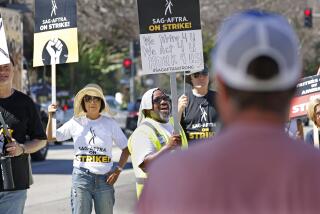New U.S. Law’s Penalties Spur Cemex to Pull Out of Cuba
- Share via
MEXICO CITY — A giant Mexican cement company has become the first foreign firm to bow to U.S. demands that it pull out of Cuba, a striking illustration of the threat posed by a controversial new U.S. law that has angered American trading partners around the world.
The company, Cementos Mexicanos, has pulled out of the communist country rather than face possible penalties from Washington against its U.S. operations, U.S. officials said Wednesday.
The firm, known as Cemex, was one of four foreign companies initially expected to get U.S. warnings today that they could be sued in U.S. courts or denied U.S. visas under the controversial new Helms-Burton law.
The three other companies--based in Mexico, Italy and Canada--have maintained their Cuba operations and were sent warnings, several officials said. Letters will be sent to as many as 30 more foreign companies in coming days, the State Department said.
“Cemex is out of Cuba. . . . They pulled out because they didn’t want to get one of these warning letters,” said a Clinton administration official, declining to be further identified.
Cemex’s withdrawal came as Mexico and other U.S. allies have furiously protested the Helms-Burton law, formally known as the Cuban Liberty and Democratic Solidarity Act. The law punishes foreign companies that profit from Cuban property seized from current U.S. citizens by the Cuban government.
After languishing in Congress for 18 months, the legislation was pushed through in March to punish President Fidel Castro for the downing of two U.S. aircraft by Cuban military.
The Cemex move shows that, for all their protests about U.S. interference abroad, foreign companies’ options may be limited if they want to maintain their profitable U.S. operations.
“Cemex’s operations in the U.S. are phenomenally large compared with whatever their investment in Cuba would be,” said another Clinton administration official, speaking on condition of anonymity.
Cemex, the world’s fourth-largest cement company, earned $12.4 million on sales of $385 million from its U.S. operations last year.
Cemex owned no property in Cuba. But it had an agreement to market Cuban-produced cement and provide technical assistance, said a U.S. official in Washington. That was enough to put it in violation of the law.
The company has pulled out its six technicians who were advising a cement plant in Mariel that is run jointly by a Cuban firm and the Mexican government’s foreign trade bank, Bancomext, the official said.
A Stamford, Conn., company, Lonestar Industries, claims it is the rightful owner of the Mariel plant.
Cemex, which is run by billionaire Lorenzo Zambrano and reported worldwide sales of $2.6 billion last year, was tight-lipped on Wednesday. It declined all comment except to reiterate that it denies violating Helms-Burton.
But in a series of quiet meetings in Washington with State Department officials in recent days, Cemex’s lawyers agreed to abandon the Cuba operation, an administration official said.
It was not clear how much money the firm lost in canceling the deal, but the alternative would have been worse. In a sign of the new law’s potential impact, Cemex’s stock plunged 2.7% in a single day last week after reports that the firm could be targeted by the State Department, said Sobani Warner, an analyst at Bear Stearns & Co. in New York.
At least three other firms were to be notified by letter today: Grupo Domos Internacional, a Mexican conglomerate; STET, an Italian telecommunications firm; and Sherritt International Corp., a Canadian mining and energy company.
Some companies have vowed to fight the legislation. Mexico’s Grupo Domos, which runs the Cuban telephone company in a $1.5-billion joint venture with the Havana government, denied in a statement that it was violating Helms-Burton.
The company said it is conducting an “exhaustive revision” of the Cuban telephone operation’s assets. However, it said it had received guarantees from the Cuban government that its investment didn’t include properties confiscated from Americans.
ITT Corp. lays claim to the telephone company, which was confiscated after the 1959 revolution.
“Our view is that ITT owned basically the entire Cuban telecommunications infrastructure,” said the Clinton administration official. “So it’s hard for Domos to not use anything” that belonged to ITT.
Italy-based STET owns 25% of Grupo Domos’ telephone company in Cuba. Sherritt, based in Toronto, is accused of using properties confiscated from Freeport-MacMoran Co. of New Orleans.
The companies will face penalties if they are still found to be in violation of the law by mid-August.
Under the Helms-Burton law, enacted in March, the U.S. government must deny visas to senior officers, their families and major shareholders of the companies using confiscated property in Cuba.
The law also allows Americans to sue the foreign companies for damages in U.S. courts. That could force the companies to sacrifice part of their U.S. operations, officials said.
Outraged, Mexico and Canada have held consultations with the U.S. government under the dispute procedure of the North American Free Trade Agreement.
“We will exercise every option we can under NAFTA to protect the best interests of Canadian businesses,” said Catherine Lappe, spokeswoman for Canada’s Ministry of Foreign Affairs.
The two countries’ protests have been echoed by the United States’ European allies, who charge that the Helms-Burton law is a violation of international trade rules.
Sponsors of the legislation, Sen. Jesse Helms (R-N.C.) and Rep. Dan Burton (R-Ind.), said they wanted to bolster existing U.S. economic sanctions in order to further isolate Castro.
(BEGIN TEXT OF INFOBOX / INFOGRAPHIC)
The Long Arm of Helms-Burton
Citing possible sanctions under the controversial Helms--Burton law, Mexican cement producer Cemex has pulled out of Cuba. The law, passed in March, seeks to tighten America’s 35-year economic embargo against Cuba. A look at its provisions:
* Starting in November, the law will allow Cuban Americans whose enterprises were taken during Fidel Castro’s 1959 revolution to file suit in U.S. District Court against foreign companies that purchased those assets.
* The law bars executives or controlling shareholders of foreign companies involved with confiscated property from entering the U.S., even as tourists, by withholding visas from them.
* Provisions could affect more than 212 joint ventures in Cuba from investors in countries including Spain, Canada, France, the Netherlands, Italy, Britain and Mexico.
Sources: Times and wire reports
More to Read
Sign up for Essential California
The most important California stories and recommendations in your inbox every morning.
You may occasionally receive promotional content from the Los Angeles Times.













